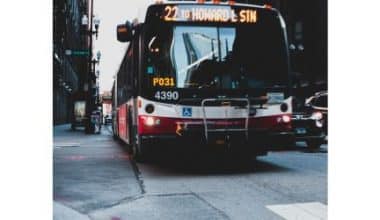Whether you use your van for commuting to work, the odd camping trip or to deliver goods for your business, you need to make sure you have the right level of insurance coverage. Your policy needs to accurately reflect the way in which you use your van.
If it doesn’t, you could run into problems in the event of a claim.
What is van insurance?
Van insurance is designed specifically for commercial vans or vehicles used for business purposes. It provides financial protection against various risks associated with owning and driving a van.
Van insurance works similarly to a car insurance policy, insuring you against a plethora of different risks associated with your van. Vans aren’t often covered by your typical car insurance policy, particularly if you use it for commercial use or other business reasons.
Van insurance can cover third-party costs should you have an accident. It can also pay out to cover the costs of repair to your van. In some cases, it can cover you against filling up with the wrong fuel or even losing your keys, depending on your policy. It typically covers losses due to accidents, theft, fire and vandalism. It also includes third-party liability, ensuring owners are protected from potential financial losses.
The level of cover and premiums vary due to several factors, such as:
- The van’s value
- Usage
- Estimated annual mileage
- Driver’s experience
- Business or depot location and area or region driven
Van insurance is a legal requirement for businesses and individuals using vans for commercial purposes. It’s required even if you only use your van for work on a part-time basis to ensure you’re adequately protected against unexpected expenses.
What is generally covered in van insurance?
Van insurance is a legal requirement to drive a van on Irish roads. It is to protect any person or property that your van may cause damage to. Every van insurance, therefore, includes third-party protection as a minimum.
Apart from that, your van insurance can give you coverage for:
- Protection of vehicle against fire and theft
- Legal claims in case of an accident
- Breakdown assistance, such as towing or roadside repairs
- Medical expenses to the driver in case of injury
- Goods in transportation
What is generally not covered in van insurance?
Van insurance has some exceptions and exclusions when it comes to coverage. Even fully comprehensive van insurance doesn’t cover certain cases.
You’re likely to not get coverage for the following in your van insurance:
- Negligence, such as leaving your van unlocked during a theft
- Overloading beyond the van’s capacity leading to accidents
- Wear and tear of van parts
- Driving without a valid license
- Driving under the influence of alcohol or drugs
- Claims arising from illegal activities such as smuggling
- Geographical limits
Factors that affect your van insurance coverage
Your van insurance coverage is affected by various factors, such as types of van insurance.
Private van insurance
Private van insurance would be suitable if you use your vehicle purely for social, leisure and domestic purposes such as doing the weekly food shop, driving to the coast for a weekend away or transporting your surf gear. Essentially, anything that’s not considered to be work-related.
One of the grey areas in the world of van insurance is that even driving to a single place of work on a regular basis is considered to be a business activity. If you use your van for the daily commute, you will need business cover because private won’t be enough.
Business van insurance
Business van insurance is the best bet if you use your van for any purpose that’s related to work, including part-time jobs. Even if you’re a part-time DJ or window washer, using your van to transport equipment or tools on a regular basis, it pays to purchase business insurance to make sure you’re properly covered.
Another area that confuses van owners is whether using their vehicle to sell at car boot sales is classed as a leisure activity or a business activity. If you go to car boot sales occasionally and otherwise simply use the van for private use, private insurance should be fine as it could be argued this is a social activity.
However, if you’re a regular trader at these events, consider purchasing business insurance as this could be deemed as business use. If in doubt, check with your insurer.
Classic van enthusiasts can count their interest as a leisure activity as this hobby isn’t considered to be a form of commercial use. But it’s worth investing in specialist insurance if you own a vintage or classic van so you get a guaranteed value policy that’s in line with the worth of the model.
Commercial van insurance
Carriage of own goods
This type of insurance is suitable for anybody who uses their van to carry tools and materials to jobs, which is usually the case for tradespeople. Examples might include a joiner or a self-employed plumber who uses a van to carry their tools to and from their jobs. While tradespeople will be covered while taking their tools between jobs, the tools and materials themselves don’t tend to have coverage under this policy.
The same goes for any other contents in your van. If you are looking for protection for your materials or the contents of your vehicle, consider taking out a goods-in-transit policy, too.
Carriage of goods for hire or reward
This type of cover is often suitable for anyone who delivers goods to multiple different destinations and along differing routes. The goods don’t belong to the driver, but rather the customers. Insurance for the carriage of goods for hire or reward also tends to cover the goods inside your van.
Haulage cover
This type of cover is specific to delivery drivers who deliver single items/orders, typically over long distances, to a set location, such as expensive machinery. A haulage policy also tends to cover the goods you are delivering as well.
Levels of cover
Third-party only cover
This type of policy covers the cost of damages to another person, their vehicle or their property which is the result of you driving your van. An example might be rebuilding costs if you reverse into somebody’s garden wall or the cost of replacing somebody’s wing mirror if you knock into it while parking.
The third-party-only cover excludes any damage to your own vehicle.
Third-party, fire, and theft (TPFT) cover
Third-party, fire and theft cover insures you for the same events as third-party only cover, but it also covers the loss or damage to your own vehicle. This is the event that the damage is caused by fire, lightning, self-ignition, explosion, theft or attempted theft.
If you cause any accidental damage to your own van, this would not be included on the TPFT cover.
Comprehensive cover
This type of policy covers your van for any accidental damage, as well as third parties and their vehicle and property if you have an accident. Comprehensive cover tends to include any fire damage and can cover some of the costs if your van is stolen.
What are the customizations available on van insurance deals?
Customised deals make a little change in the policy to make it better suited for you and your van. Here are some popular examples of customized deals:
- Van fleet insurance. Covers two or more of your vehicles under a single policy.
- Business pickup truck insurance. Protects you, your employees, and your business from damages and liabilities.
- Any driver van insurance. Allows you to cover multiple people under a single policy.
- Specialist van insurance. Cover you if a standard policy doesn’t meet your needs because your van has been modified to the needs of your business.
- Multi-van insurance. Provides the same coverage as standard van insurance but with all your vans covered by the same provider.
- Haulage [goods in transit insurance]. Covers you or your customer’s property or goods if lost, damaged or stolen while they’re being moved from one place to another.
- Courier [Good for hire/reward]. Courier drivers who deliver goods using their own vehicle are required to take out a hire and reward policy.
- Carriage of own goods. Protects all your belongings in the vehicle such as tools and work equipment.
Additional coverage
Add-ons are additional covers that can be included in your policy, at an additional price, depending on your needs. Some examples of add-ons in van insurance are:
- Breakdown cover. Assistance when your vehicle breaks down, offering help with repairs, towing, and other services to get you back on the road safely.
- Personal Accident Cover. Provides financial support in case of accidental injury or death while driving, protecting you and your family.
- Windscreen protection. Covers repair or replacement costs for damaged windshields, ensuring clear visibility and safe driving.
- Full bonus protection. Safeguards your no-claims bonus, preventing it from being affected even if you have to make a claim.
- Key Cover. If your van insurance gives key coverage, it helps if your car keys are lost, stolen, or damaged. You can replace or repair them.
How much does van insurance cost?
The average van insurance premium in 2019 was £1,698.79, according to Confused.com. Generally, van drivers can expect to pay significantly more than they would for standard car insurance. There are several reasons for this:
- Vans have larger engines, and are therefore more expensive to repair should things go wrong.
- Vans are larger generally, meaning they can also cause more damage in an accident
- Vans tend to carry more valuable cargo, such as tools, materials, and equipment.
How much you pay will largely depend on the level of coverage for which you opt. Third-party-only cover is typically the cheapest option. However, many insurers consider this a low level of protection, and may not be suitable for everyone.
What you use your vehicle for, and where, are also significant factors which play into the cost. If you operate in urban areas with high crime rates, your insurance is likely to be more than if you work in a more rural area. All these factors increase the risk for the insurer, which is why they bump up your price.
The cost of van insurance can vary depending on several factors, such as:
- Type: The make, model, age, and engine size of your van.
- Use: Whether you run your van for personal or commercial purposes, as well as its estimated annual mileage.
- Location: Where you live or work, where the van is kept overnight and whether you tend to use it in busy periods of the day.
- Driver details: Your age, driving experience, and claims history. Younger, inexperienced van drivers will pay more than their older counterparts, as they have a statistically higher risk of having an accident and needing to make a claim.
- Security: The security features installed in your van, such as immobilizers, alarms, and tracking devices.
How to minimize van insurance costs
- Telematics or black box Insurance, Installing a telematics device or black box in your van allows insurers to track your driving behavior, potentially resulting in lower premiums if you prove to be a safe driver.
- Advanced driving courses. Completing advanced driving courses, such as Pass Plus or Van Excellence, demonstrates your commitment to safe driving and may lead to discounted insurance rates.
- Fleet Insurance. If you own multiple vans for commercial purposes, consider obtaining a fleet insurance policy. Insuring all your vans under one policy can often be more cost-effective than insuring them individually.
Van insurance for young drivers
Van insurance can be expensive, no matter how old you are or how much experience driving you have. However, those hit with the highest premiums are younger, inexperienced drivers, sometimes having to pay double the price of an experienced driver.
According to the road safety charity Brake, 23% of motorists aged between 18-24 have involvement in a crash within the first two years of passing their test. These statistics mean that any type of vehicle insurance, but especially van insurance, is even more expensive for younger drivers.
Some insurance providers now offer specific policies tailored to younger drivers to help them find insurance at a reasonable price. Most insurance providers consider anyone under the age of 25 to be a young driver in the UK.
Fleet van insurance
This type of policy provides insurance for two or more vehicles owned by the same business. Fleet insurance is a handy type of insurance for business owners who want to deal with the insurance for their vehicles under one policy with a single renewal date and ensures a consistent level of coverage for each vehicle.
Under this type of policy, you can usually insure different makes and models of van, provided you inform the insurance provider of the details of each vehicle. How many vans you can insure under a fleet insurance policy varies between providers, but can be up to the hundreds, or even thousands.
Business owners tend to opt for a fleet van insurance policy as it’s easier to keep track of all their insurance policies for multiple vehicles in one place. Aside from the convenience, fleet van insurance tends to be cheaper than insuring all the vehicles individually – particularly if a company has tens or hundreds of vans to insure. Not only that, but many fleet policies include coverage for any drivers, meaning any of your employees will be able to drive any van in the fleet, reducing the hassle for business owners. However, as the insurer has no information about the drivers they’re insuring, this typically boosts your premiums.
Most insurance providers will allow you to insure a variety of van types on a fleet policy, including:
- pickup vans
- tipper vans
- Box Luton vans
- light vans
- vans with single or double cabs.
Recommended Articles
- Car Insurance Calculator: How To Estimate Your Cost
- Does Car Insurance Cover Theft?
- Nissan Car Insurance: Average Cost & How To Get It
- What Is Liability Car Insurance: Meaning & What It Covers
- Best Car Insurance for New Drivers
- Electric Car Insurance: How Does It Work?






